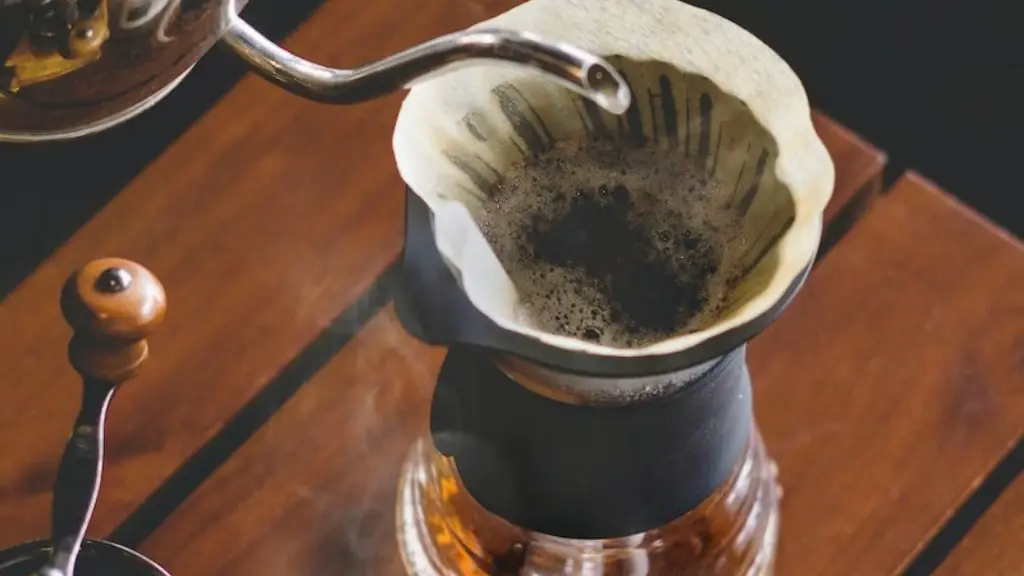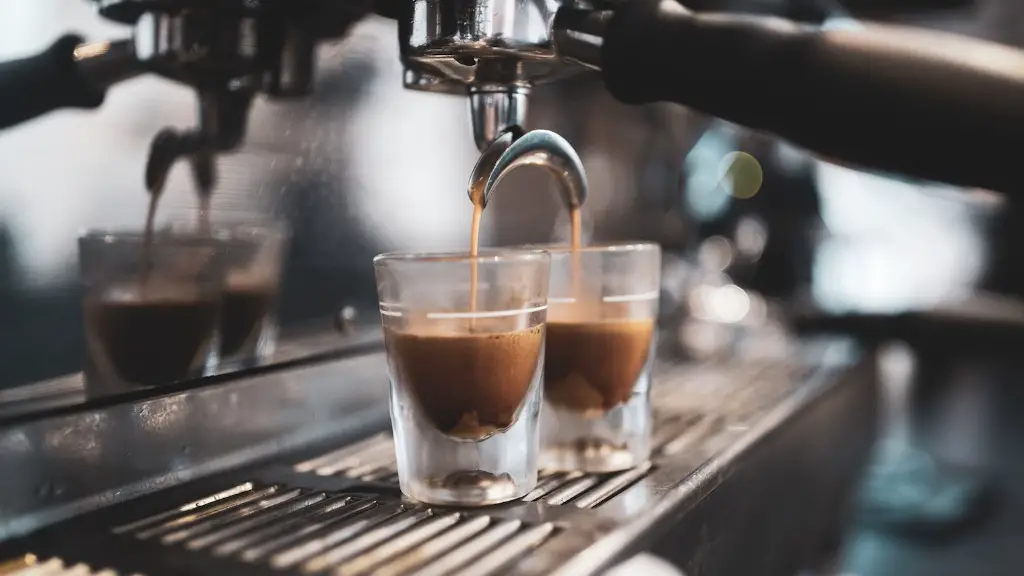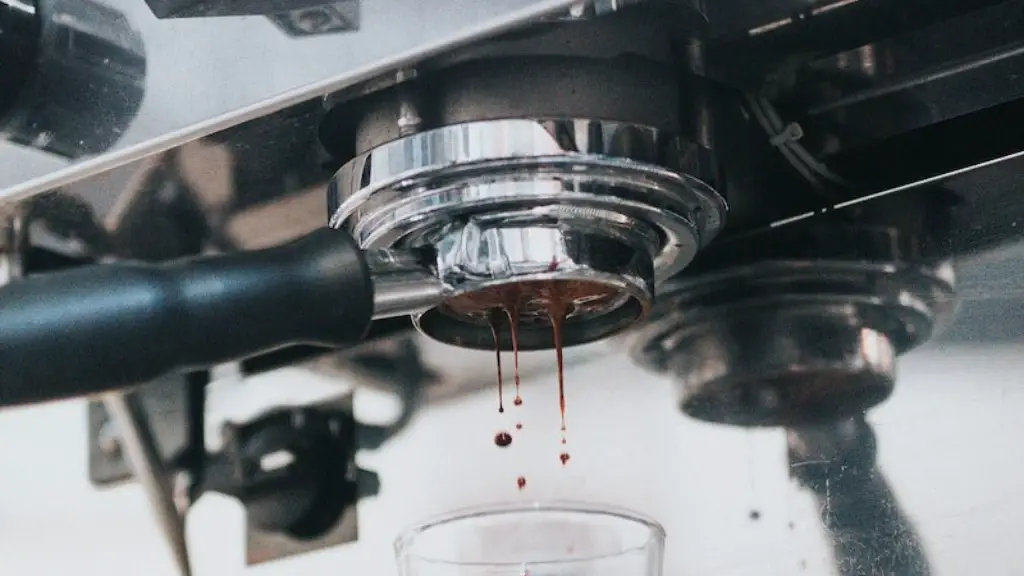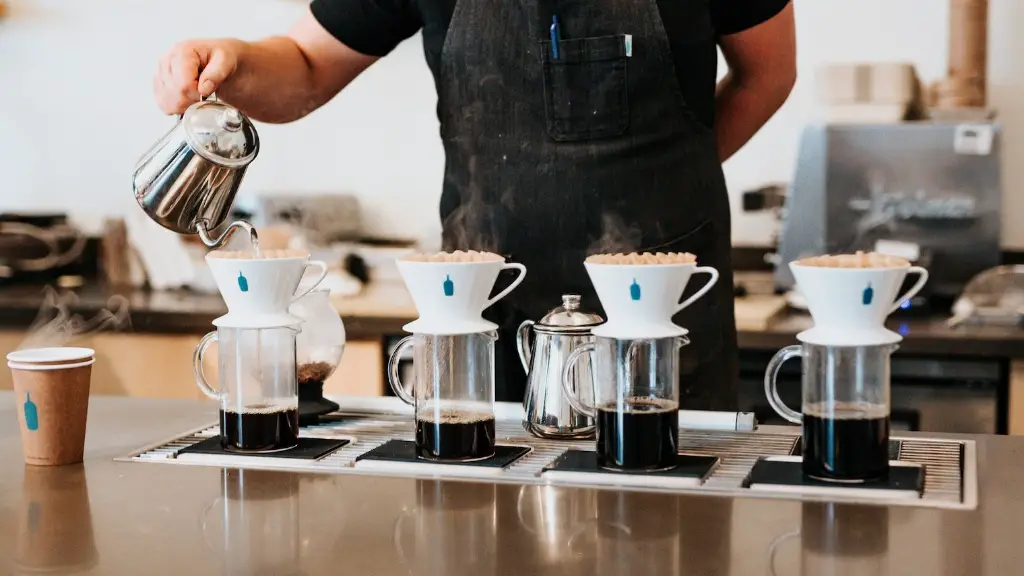The topic of why humans have to poo after drinking coffee is complex, intriguing and something that many of us have experienced at some point in our lives. From anecdotal evidence to scientific research, it is well known that coffee consumption can have a stimulating effect on the digestive system leading to increased bowel movements. But what is the cause of this phenomenon?
To understand why coffee can affect us in this way, it is helpful to look at what is happening inside the body. Coffee has several ingredients, including caffeine, which have a stimulatory effect on the body. Caffeine directly affects the areas of the brain responsible for controlling the urge to poop. Additionally, the coffee itself is osmotically active, which means it has the ability to draw water into the small intestine. This increased amount of liquid in the digestive tract stimulates the digestive muscles leading to increased bowel movements.
In addition to the biological aspects, there are also mental and emotional reasons why people may struggle to ‘hold it in’ when they consume coffee. Drinking coffee increases alertness and makes people more aware of their digestive processes. The psychological anticipation can often lead to a feeling of needing to go to the toilet as soon as coffee is consumed.
Experts in the field of gastroenterology have spent many years researching the reasons why individuals experience increased bowel movements after drinking coffee. The consensus is that it is a combination of both the physiological and psychological effects. As Professor Johan Wilcke of the Department of Gastroenterology at Uppsala University explains, ‘Caffeine is a powerful stimulant with many effects on the body, including stimulation of the digestive system. It is well known that coffee consumption leads to an increased urge to defecate and there is a clear correlation between the two’.
Nevertheless, many people can successfully resist the urge to poop after consuming coffee. This can be attributed to their tolerance for caffeine and the fact that their body may be used to consuming it regularly. Professor Wilcke explains, ‘It is not necessarily the case that everyone who drinks coffee experiences an increased urge to defecate. It depends on individual tolerance and the amount of coffee consumed’. Additionally, drinking decaffeinated coffee can help to reduce the chance of having an increased urge to go to the toilet.
Therefore, while it may be unpleasant and embarrassing, it is clear that pooping after drinking coffee is a natural reaction that happens to many people. To understand why this is the case, it is important to consider the physiological and psychological effects that coffee has on the body, as well as individual tolerance levels.
How Does Coffee Affect Health?
Coffee is often seen as a ‘guilty pleasure’ although recent research suggests that there could be some health benefits associated with the drink. In fact, drinking several cups of coffee per day can reduce the risk of coronary heart disease[1], stroke[2], type 2 diabetes[3] and even certain types of cancer[4]. This is due to the naturally occurring antioxidants that can be found in coffee. Additionally, coffee can also have a beneficial effect on cognitive performance and alertness[5]. Therefore, it can be said that moderate coffee consumption is not only safe, but may even have some potential health benefits.
However, it is important to note that the health benefits are linked with moderation and that the drink can become unhealthy if taken too far. For example, excessive amounts of coffee can cause problems such as insomnia, jitteriness and an increased heart rate. Therefore, it is best to avoid consuming more than four cups per day and to be aware of the impact that coffee could have on your health.
What Other Beverages Have an Impact on Bowel Movement?
Although coffee is the most commonly known beverage to have an effect on the digestive system, there are other drinks that can also cause an increased urge to poop. Carbonated drinks, such as sparkling water and soda, can stimulate the digestive system as the gas bubbles pass through the gastrointestinal tract. Additionally, alcoholic beverages can also lead to increased bowel movements as the alcohol has a direct effect on the intestines and can cause them to contract.
Finally, fizzy drinks containing fructose can have an effect on the digestive system as the sugar can draw water into the intestine leading to increased bowel movements. Therefore, it is important to be aware of the potential impact that all beverages can have on the body, in particular their effects on pooping.
How Can People Avoid Coffee Aftereffects?
Although coffee aftereffects can be unpleasant and embarrassing, there are some steps that people can take to minimize any adverse effects. For example, drinking decaffeinated coffee can make a big difference in reducing the chances of having an increased urge to go to the toilet. Additionally, drinking coffee alongside food can also help to slow down the digestion and absorption process which may reduce the impact of the beverage on the digestive system[6].
In addition, reducing the overall amount of coffee that one drinks can help to reduce the intensity of any coffee aftereffects. Furthermore, avoiding additional stimulants such as energy drinks and certain herbal supplements can also help to lessen the impact of coffee consumption.
What Factors Increase the Chance of an Afterpoop?
The chances of an afterpoop can range from person to person due to individual tolerance levels and overall health. However, there are certain factors that can increase the chances of an afterpoop after drinking coffee. For example, individuals who have underlying health conditions such as irritable bowel syndrome can be more susceptible to the effects of coffee. Additionally, people who are pregnant or are over the age of 65 can also be more susceptible to the effects of coffee consumption[7].
Finally, caffeine consumption can also increase the chances of an afterpoop. Consuming large amounts of caffeine can overload the digestive system and increase the chances of an afterpoop. Therefore, it is important to be aware of the amount of caffeine being consumed as this can make a big difference in reducing the chances of an afterpoop.
Which Foods Can Help Reduce the Afterpoop?
In addition to reducing the amount of caffeine being consumed, there are also certain foods that can help to reduce the chance of an afterpoop. For example, consuming high-fibre foods such as wholegrains and fruits can help to slow down digestion and absorption, which in turn can reduce the likelihood of an afterpoop. Additionally, foods containing probiotics, such as yoghurt and kefir, can also help to reduce symptoms of gastrointestinal distress and lessen the chance of an afterpoop[8].
Therefore, it is always a good idea to eat a balanced diet to reduce the chance of an afterpoop. Additionally, it is important to stay hydrated as increased fluid levels can help to reduce the effects of caffeine on the digestive system[9].
What Factors Can Increase a Person’s Tolerance for Coffee?
Drinking coffee regularly can help to increase a person’s tolerance for the drink. This is due to the caffeine being processed by the body in a regular and systematic manner. As a result, people who drink coffee regularly may not experience as strong an urge to poop after consuming the drink. Additionally, reducing the amount of caffeine being consumed can also help to decrease the intensity of any aftereffects[10].
Furthermore, exercising regularly can help to increase the body’s natural metabolic and digestive processes, which in turn can help to increase tolerance for the afterpoop[11]. Finally, it is important to listen to your body and be aware of how coffee is affecting you. Making lifestyle adjustments such as cutting down on the amount of coffee being consumed and changing the type of coffee being drunk can make a big difference in how the digestive system processes the beverage.




